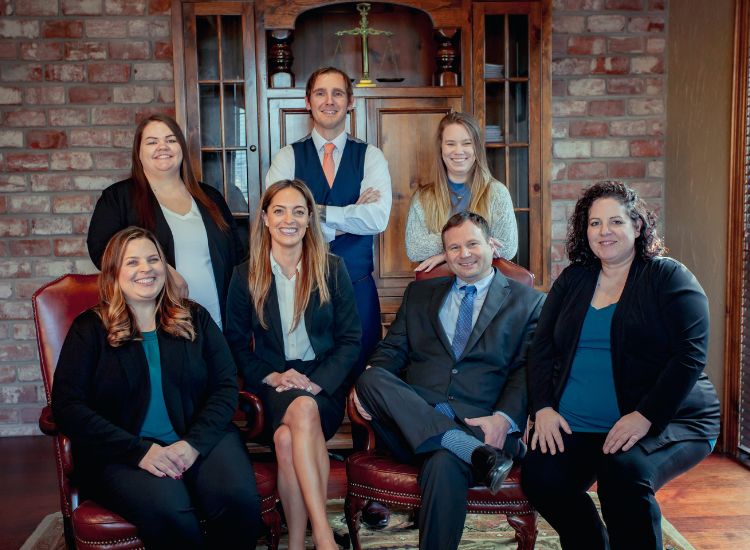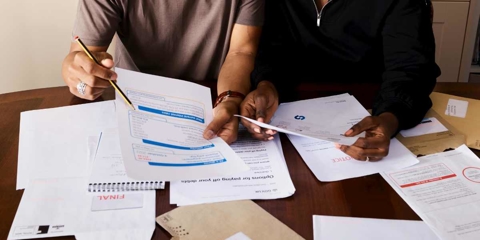Student Loan Debt Attorney in Springfield
The purpose of bankruptcy is to relieve the burden of debt. What if that debt is student loans? Can student loans be discharged in a bankruptcy? The short answer is yes, however, it is a difficult process which will require an adversary lawsuit.
An adversary lawsuit is a separate proceeding within your bankruptcy, where you would sue your student loan provider to attempt to have the debt deemed dischargeable. Generally, adversary proceedings are not included in the cost of a bankruptcy case.
Speak with our Springfield attorneys today by completing our online form or calling us at (417) 213-5006.
Understanding the Process of Discharging Student Loans
To have student loans discharged in bankruptcy, you must prove the repayment of the debt will impose an undue hardship on you and your dependents. Different courts use different guidelines, or tests, to determine what constitutes undue hardship.
The Eighth Circuit Court of Appeals, which covers the State of Missouri, uses the "totality of the circumstances" test to determine whether a student loan debt should be discharged based on undue hardship. The burden of proving undue hardship is on the debtor.
This means it is up to you and your bankruptcy attorney to prove the student loan debts are causing undue hardship. The Debtor must provide supporting evidence of this hardship.
The bankruptcy court will evaluate the evidence provided and consider:
- The debtor’s past, present, and reasonably reliable future financial resources.
- A calculation of the debtor’s and debtor’s dependent’s necessary living expenses.
- Any other relevant facts or circumstances of each individual bankruptcy case.
Key Factors in Evaluating Undue Hardship for Student Loans:
- Total present and future incapacity to pay for reasons not within the control of the debtor. Essentially, can you pay now, or will you ever have the capacity to pay for reasons out of your control?
- Has the debtor made a good faith effort to negotiate a deferment or forbearance?
- Will this hardship be long term?
- Has the debtor made payments on the student loans?
- Is there a permanent or long-term disability that is preventing you from paying on the student loan debt?
- Does the debtor have the ability to obtain gainful employment in the field of study?
- Have you made a good faith effort to maximize income and minimize your expenses to allow for repayment of the student loans?
- Was the dominant purpose of the bankruptcy filing to discharge the student loans?
- The ratio of student loan debt to total indebtedness.
Local Resources for Student Debt Relief in Springfield
In Springfield, residents facing the burden of student loans can find support through various local resources. The City of Springfield offers financial counseling services that can help you understand your options for managing student debt. Additionally, the Missouri Department of Higher Education and Workforce Development provides information on student loan repayment programs and financial aid resources that may be available to you.
At Licata Bankruptcy Firm, we understand how difficult it can be to juggle monthly expenses while managing the weight of student debt. The financial strain can be overwhelming, but you don’t have to face it alone. Our team can help you navigate the complexities of discharging student loans through bankruptcy, providing the guidance and support you need every step of the way.
We take the time to understand each client’s unique financial situation and can advise you on the best-suited options available. With the right approach and personalized strategy, you can take meaningful steps toward relieving the burden of student debt.
If you're in Springfield and feeling overwhelmed by student loans, don’t hesitate to reach out to our dedicated team for assistance and tailored solutions. Let’s work together to help you pursue financial freedom.
Commonly Asked Questions
What does 'undue hardship' mean in the context of student loan discharge?
In the context of student loan discharge, 'undue hardship' refers to a situation where repaying the loans would impose significant difficulty on you and your dependents. The Eighth Circuit Court of Appeals, which governs Missouri, uses the 'totality of the circumstances' test to assess this hardship. This means that the court will consider your current financial resources, living expenses, and any other relevant factors to determine if you can realistically repay your loans.
Why should I choose a bankruptcy attorney in Springfield for my student loan issues?
An experienced attorney will understand the specific laws and regulations in Missouri and can guide you through the adversary lawsuit process effectively. They will help you gather the necessary evidence to prove undue hardship and represent your interests in court. With their support, you can increase your chances of successfully discharging your student loans and alleviating your financial burden.
How long does the process take to attempt discharging student loans in bankruptcy?
The process of attempting to discharge student loans in bankruptcy can be lengthy and varies by case. Generally, filing for bankruptcy takes several months, but adding an adversary proceeding for student loans can extend this timeline. Preparing and collecting necessary documentation, as well as court schedules, affect the duration. On average, it may take six months to a year or more to reach a resolution.








